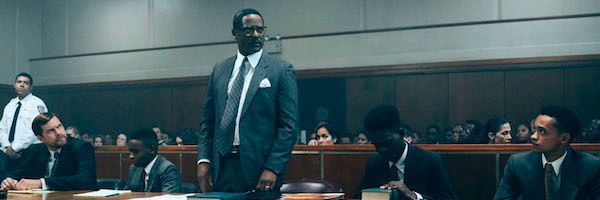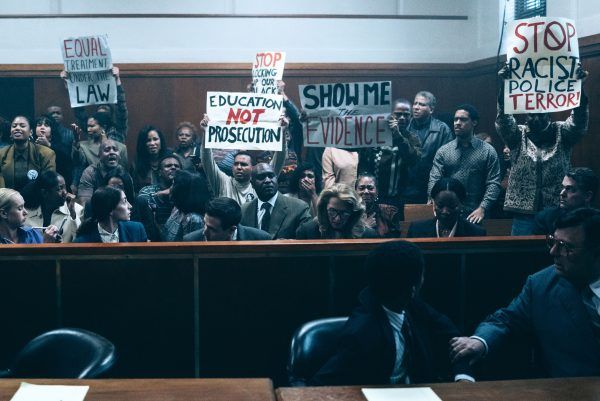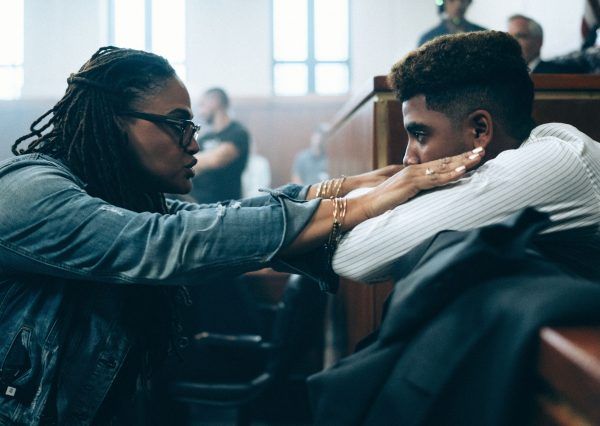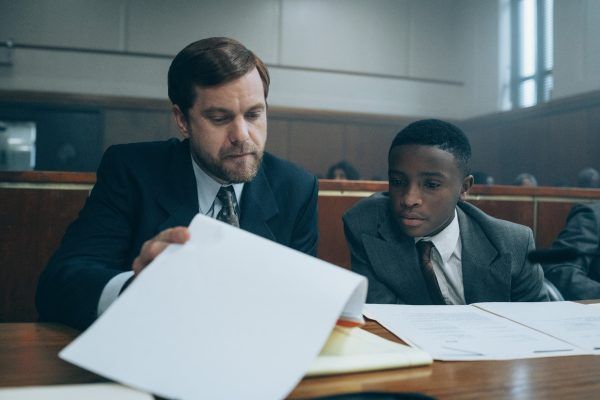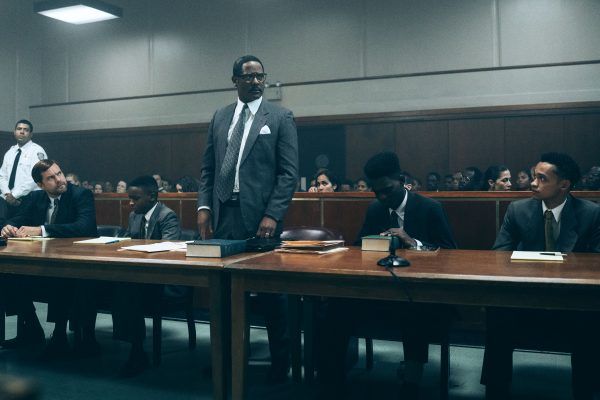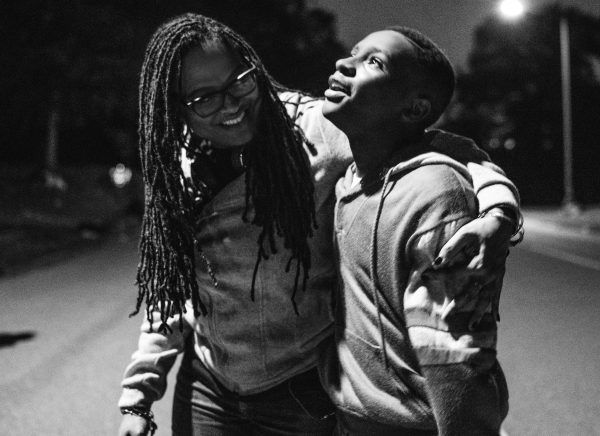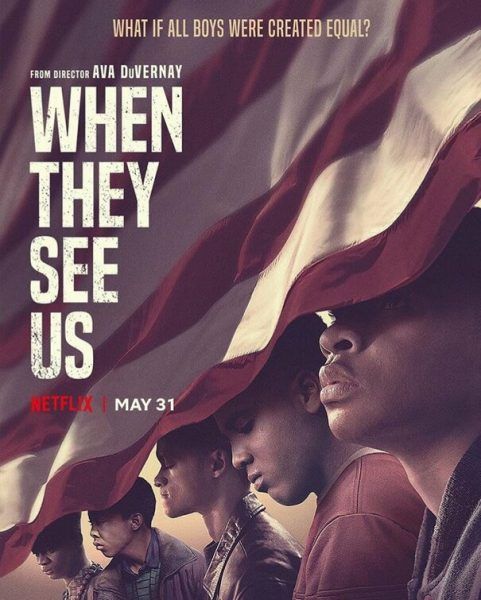Created, co-written and expertly directed by Ava DuVernay, the four-part Netflix limited series When They See Us chronicles the notorious case of the five teenagers of color from Harlem – Antron McCray, Kevin Richardson, Yusef Salaam, Raymond Santana and Korey Wise – who became labeled the Central Park Five, after being accused of a violent rape in New York in the spring of 1989. After being questioned as teenagers and pressured to confess, they were convicted and sentenced and served between 6 and 13 years in prison before their exoneration in 2002, and watching their journey will break your heart, turn you into a sobbing mess who’s angry at the injustice of it all, and inspire hope.
During this phone interview with Collider, co-stars Joshua Jackson, Blair Underwood and Christopher Jackson (who play three of the defense lawyers for the teens) talked about digging deeper into what really happened in this case, the environment that Ava DuVernay created on set, how prepared she made sure the actors would be, how this story is both devastating and inspiring, and the hope that this will help bring knowledge to the viewers.
Collider: First of all, tremendous work on this from everybody. Everything about the way this story is told is so beautifully and thoughtfully handled, and it’s something that everyone should be proud of. Before this project came your way, do you feel like you knew about this case and who these men were, or were the details of this story very eye-opening for you?
BLAIR UNDERWOOD: I knew broad strokes. I knew the basics. I didn’t know much of the details, at all. I was really enthusiastic about learning more about it, and being able to drill down on the information and the details of the story.
CHRISTOPHER JACKSON: I moved to New York in ‘93, so just having exposure to it, from that time period, you learn about the significance of the issues of the day. It’s always been a story that’s been mentioned and that existed in the zeitgeist of those who are looking to be aware of what has happened in this city, for sure.
JOSHUA JACKSON: For me, I have vague memories of the adults in the house talking about the case, when I was a kid, and then it was brought back into my consciousness when the documentary came out. Regardless of all that, when we got into this, I started to learn about the actual details of the case, and the media frenzy surrounding these guys, and the way that the mainstream media framed these, at that point, boys. It was still quite shocking to me. Even understanding that they were railroaded, and even understanding that an injustice had been committed against them for which they were ultimately exonerated, I didn’t realize quite how egregious the injustice was.
This project came to be when one of these men specifically reached out to Ava DuVernay because he felt she was the right person to tell their story. What was your first meeting with her like? Did you immediately understand the vision she wanted for this?
BLAIR: That was Raymond Santana that reached out to Ava to tell their story. My first interaction with Ava, with regards to this project, was a huge package of research that she and her team had provided all of us. I’d never experienced, in my career, ever before, somebody who’s done that much work for you. What it did was show the framework of the story that she wanted to tell and how she wanted to tell it, and it set the bar, in terms of making sure everybody was as prepared as possible, when they got to that set.
JOSH: Yeah, there was no excuse. If you didn’t know it, that was on you.
Did you find that, working with her throughout the production? It seems like she took a lot of care with this, even making a crisis counselor available to the actors. That’s not stuff you hear about, every day, on the set of a project.
JOSH: That’s not stuff you ever hear about, ever, on the set of a project.
CHRIS: In this day and age, we’re allowed to care about the people that we work with. That’s acceptable. And in doing so, it certainly allows us, as actors, to care about the people that we’re working for and with. With Ava, you never get a sense that you’re on a boat without a rudder. She’s clearly the captain of the ship, but she’s our peer. We’re artists together. We’re in a room together. Every single person, from the grips to the camera operators to the DP to her to the actors, we’re all there together, truly trying to accomplish something together. You never lose sense or lose sight of the fact that every single person is truly important and their value is made known, and they’re appreciated and respected by everyone there. It’s not common, but it sure is nice when it happens.
JOSH: Yeah, just as an anecdote to the environment that she created – and I’ve never seen this before and maybe it’s ‘cause I just wasn’t paying attention – because she’s on Instagram, at some point during the production, she literally went to every single person who was on that production, through every department, put a camera in their face and said, “Tell me your name, and tell me what you do.” That sense of empowerment, that sense of, “I recognize the value that you are bringing to this, and you’re a part of telling this story,” and the recognition of the importance of everybody who has pulled their weight – from the actors to the grips to the electricians to the set dec to the transpo – it doesn’t matter what you’re doing, you have a piece in this. When the Top Dog says, “I see you and I recognize your value,” that sense of empowerment makes you want to put every piece of yourself into it. She creates that environment, not just for the actors, but for everybody to be their best selves. And then, she demands that you be your best self.
BLAIR: That’s a great point.
It definitely feels like, as much as she has something to say about every project she does and everything that she does, she also listens, and that’s not something that everybody does in return.
BLAIR: It’s not something that everybody in her position has the ability to do. There’s a lot of different ways to get into that chair, and it’s not always that you’re a good human being. Sometimes it’s just ‘cause you know how to shoot scenes really well.
This story really is as inspiring as it is devastating. There are so many moments that make you angry and that feel so tragic that it hurts to watch them. When you dug into all of this, what most angered or upset you, and what did you feel most inspired by?
BLAIR: For me, the thing that angered me the most was the same thing I feel, as a father with my kids. With social media, when my son was 12 – he’s 18 now – he had access to anything and everything, which includes pornography and everything else. The sense of not being able to protect his innocence angered me, as a parent. By the same token, in being a part of telling this story and learning more about this story, and meeting the actors and really dialing in on who these young people were, and seeing their pictures in 1989 and realizing that these were babies – and I call them babies, even though they were 14, 15 and 16 years old – it angered me that this was done to these kids. They were coerced into giving false confessions, and they were thrust into jail. Everything that happened to them angered me. What inspired me most was that they survived and came out on the other side. The end of this four hours is very inspiring, in spite of everything they went through. They were exonerated and they live on.
JOSH: Yeah, I’ll second that. That’s it. That’s the whole thing.
As actors, you guys were co-stars with each other, but oftentimes in the courtroom scenes, you’re not really directly interacting with each other. When it came time to shooting those courtroom scenes, what was that experience like, working with the younger actors that you’re representing, as well as working alongside each other?
JOSH: That’s not really how I would frame it. We shot the courtroom in scene order, which is very often not the way, so it felt like you were building one story. Even though a lot of the courtroom stuff is conversational and you’re not talking directly to each other, because we shot it in order the way that it was written, each one of the lawyers’ arguments was building on the other lawyers’ argument. Even though we weren’t in dialogue together in the scenes, we were part of one narrative that we were all building together. I hear what you’re saying about maybe it seeming like there’s a disconnect because it’s not two people sitting at a table talking to each other, but when we were in the room and on set, I didn’t feel any disconnect, at all. And those young men were on fire. It’s a testament to Ava, again, that she created a space for young people to come in, into an adult environment, which is not always easy, and have the freedom that they needed. That’s a hard time in your life to be emotionally vulnerable, and they were really exceptional. You do everything you can to hide that part of yourself and to cover that up. For Ava to create an environment, and for that whole crew to create an environment, for these kids to come and be as vulnerable and stripped down as they could possibly be, and then for them to have the emotional bravery, at that age to step through that and do that so impressively, they really did it.
This case is a textbook example of racial bias. This story could be about any group of young men or women from similar backgrounds that look a similar way. What do you hope audiences take from seeing this, especially with as relevant as it is today?
CHRIS: You can make the most powerful movie ever made, and you hope that whatever resonates gets taken home and survives the night. You also hope that, the next morning, it gives someone pause before they would act on their more base instincts, or out of habit. It took us a better part of 500 years to arrive at this moment, good, bad and everything in between. The idea that you can make one speech or one movie, or express a thought or show the injustice of a particular time, you hope that it resonates, and you hope that resonance will last. You hope that it would create change. I think evidence has proven the opposite, but hope is the reason why we get up every morning. Hope is the reason why making this kind of film is worthy. Hope is the reason why there will hopefully be 20 more like this. If you can save one body, and one heart and soul and mind, then it’s a worthy cause and a worthy venture. I want to be cautious about the real expectations. The reason why people fear is the reason why this kind of thing happened, and people aren’t going to be stop being afraid because they saw this movie. They may know more than they did. The end of fear is the beginning of knowledge. Hopefully, that’s what it brings us to.
When They See Us is available to stream at Netflix.

